With the slogan “We are Mediterranean”, the 5th edition of the MedCat Days 2024 focused on the tòpic ‘Tackling climate change in times of multiple crises in the Mediterranean’. To that end, it offered a space for meeting and dialogue, as well as for advocacy and visibility of the actors working in the basin.
MedCities contributed to the debate, concretely in the round table about ‘Euro-Mediterranean Cooperative Responses to address climate change’ in which MedCities Secretary-General, Mr. Josep Canals, shared the stage with a representative of the Center for Social and Economic Research (CASE), the Vice-President of Tanger -Tétouan-Al Hoceima Regional Council (that includes two of MedCities members: Tanger and Tétouan), the Mayor of the Greater Ramtha Municipality (Jordan) and the Founding Principal of Resilient Cities Catalyst, Mediterranean Climate Action Partnership (MCAP).
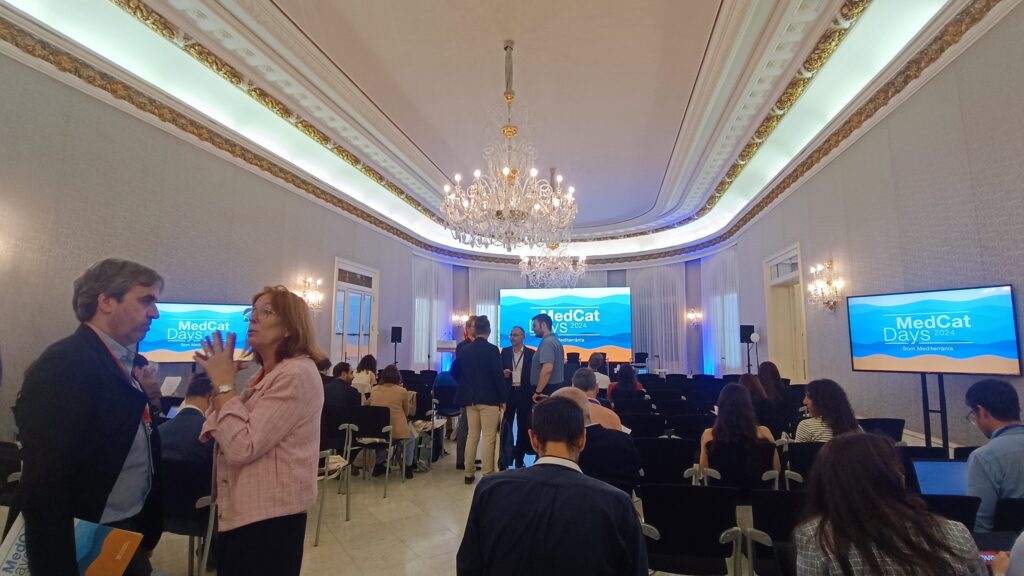

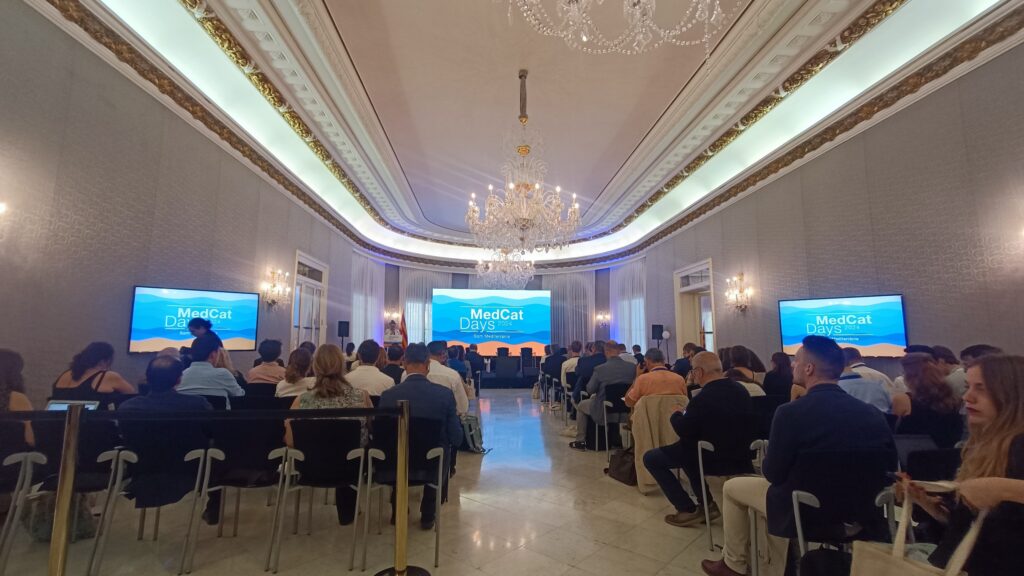
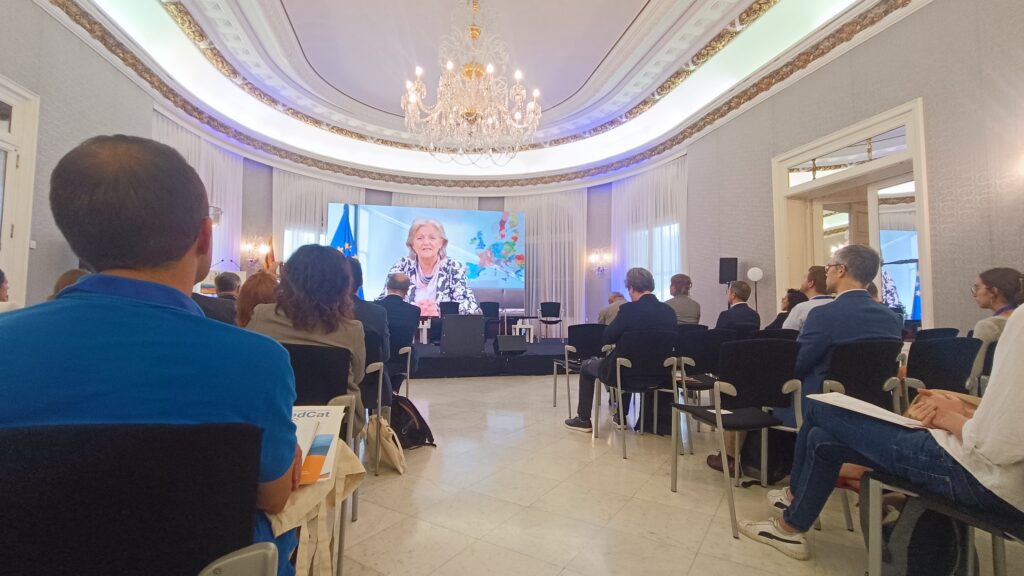
MedCities Secretary-General highlighted: “We are very concerned about adaptation to climate change and very little about mitigation. Because the second is related with changing human attitudes, behaviors and perceptions and that is much more difficult than providing money and resources to patch over what is coming”.
Concerning concrete examples of projects where MedCities works in Euro-Mediterranean cooperation, we took the opportunity to talk about the ones we implement to provide resources and capacities to local authorities. As the creation of the strategic planning of Tunis (ASIMATunis project), the revalorization of non-conventional wàters (named ValeurGabès project), or the one focused on greening the cities (called HERA project). The secretary-general also talked about the European-funded projects in which MedCities has the role of transferring and disseminating of activities and results such as Natural Heritage and Green Living Areas Interreg Euro MED thematics.
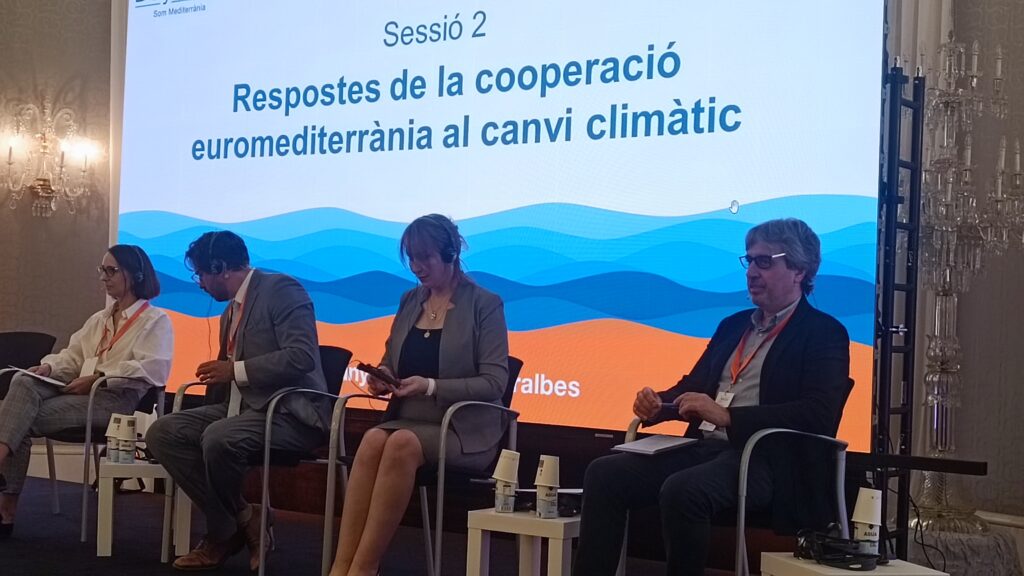
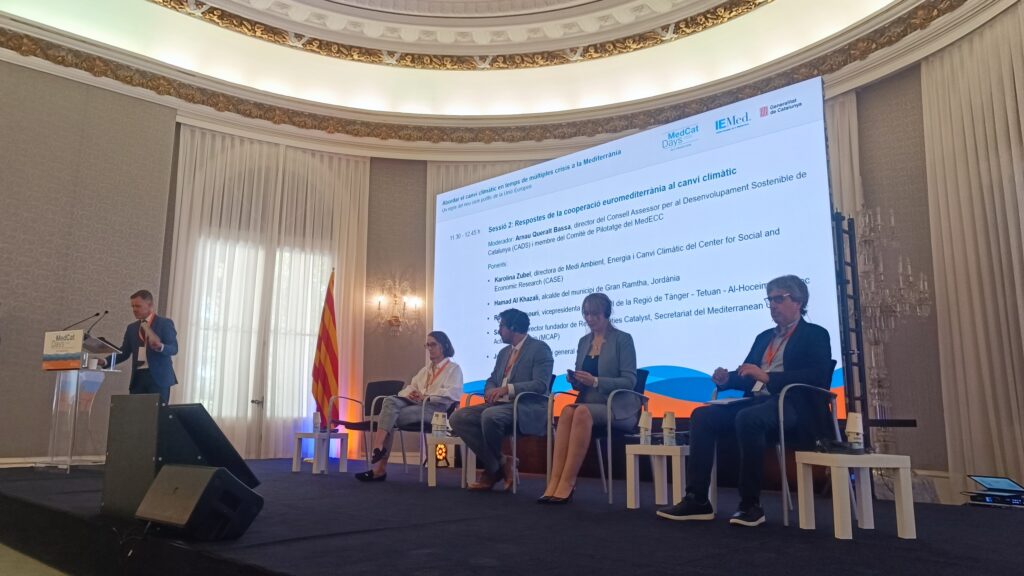
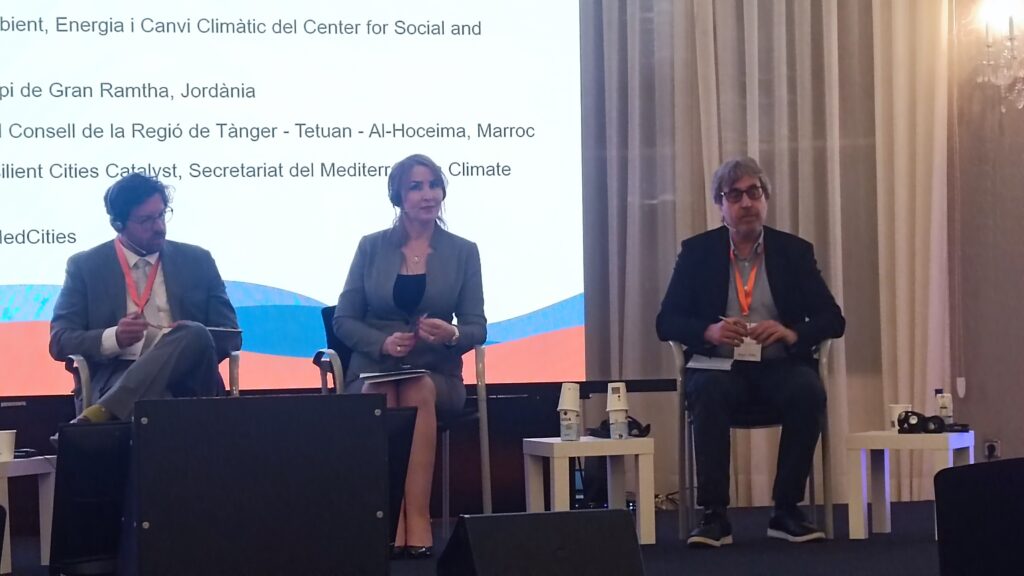

The two-day seminar focused on how to address climate change in the Mediterranean in the current context of crisis and how it overlaps with other challenges in the region: the relation to climate change and drought, and the responses at the institutional and political level and the importance of territorial and cross-border cooperation and new cooperation mechanisms to address the key challenges facing the Mediterranean, such as climate change.
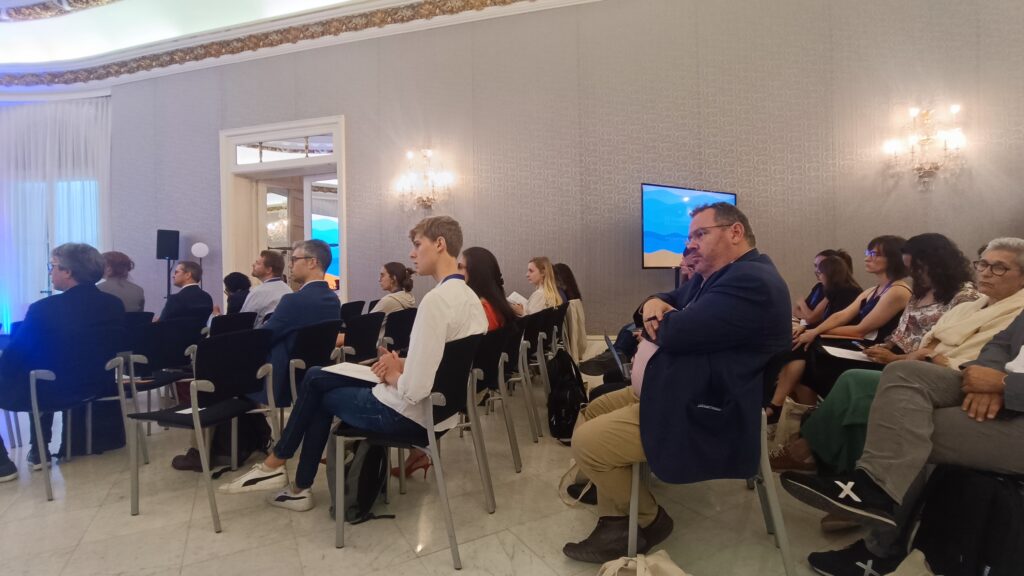

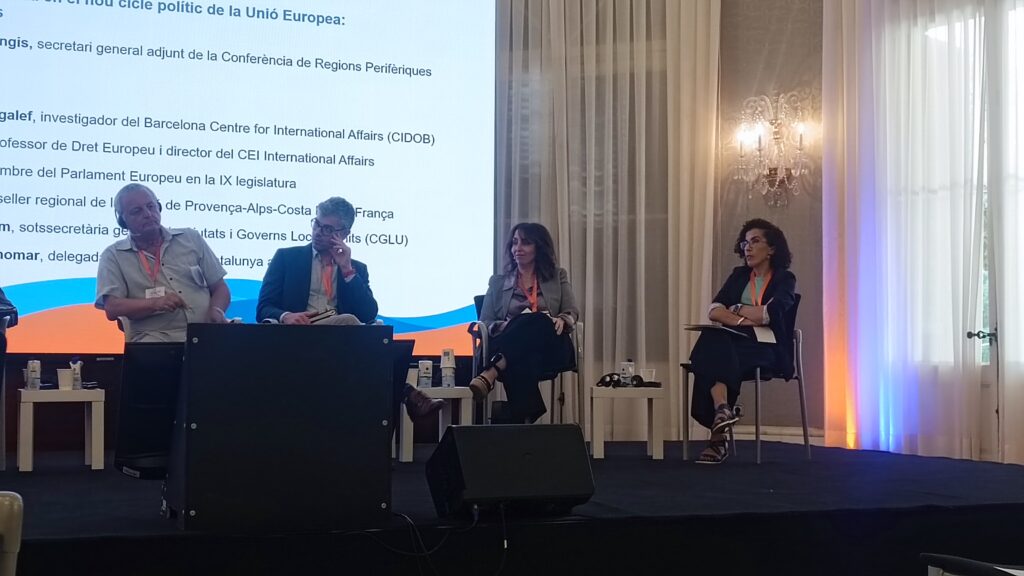

Lately, the final session analyzed how different Euro-Mediterranean initiatives and programs focus on the water dimension and address the problem of drought. The debate provided examples of ongoing innovative good practices and projects focused on drought and climate change. In this last round table, the General Manager of the Barcelona Metropolitan Area (AMB), Ramon Torra, emphasized the importance of the work carried out, together with MedCities, in projects that have water as a common thread. One of the examples is VaEUrGabès, which evaluates the water resources of the city of Gabès and also works on the planning, valorization, and efficient management of resources so that the city council itself is equipped with tools to continue the work done so far. Mr. Torra also emphasized the importance of transferring knowledge on the use of rainwater to other Mediterranean cities. On this point, he also emphasized that MedCities plays an indispensable role in ensuring that no coastal city is forgotten by the northern and southern cooperation of the basin.
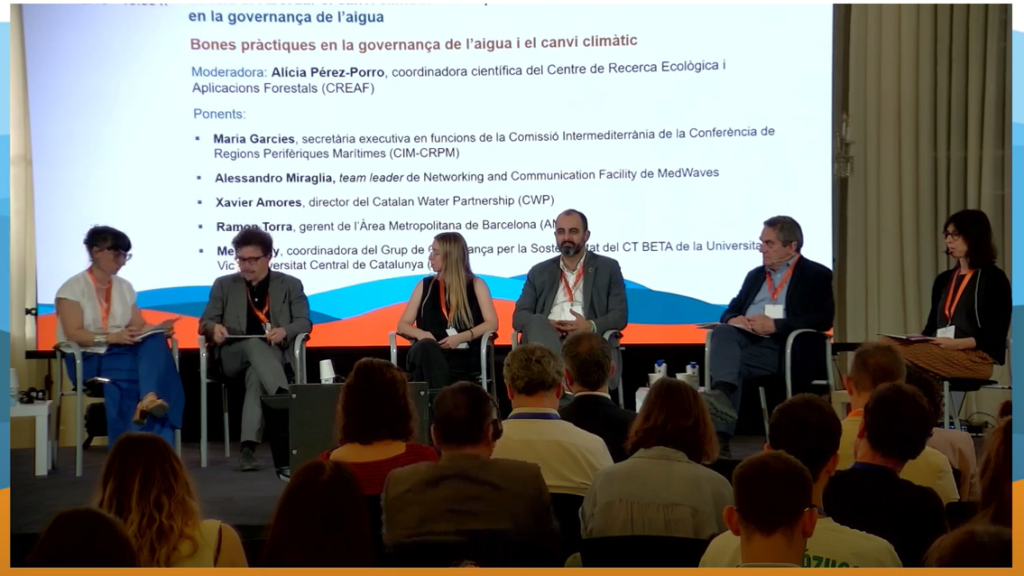

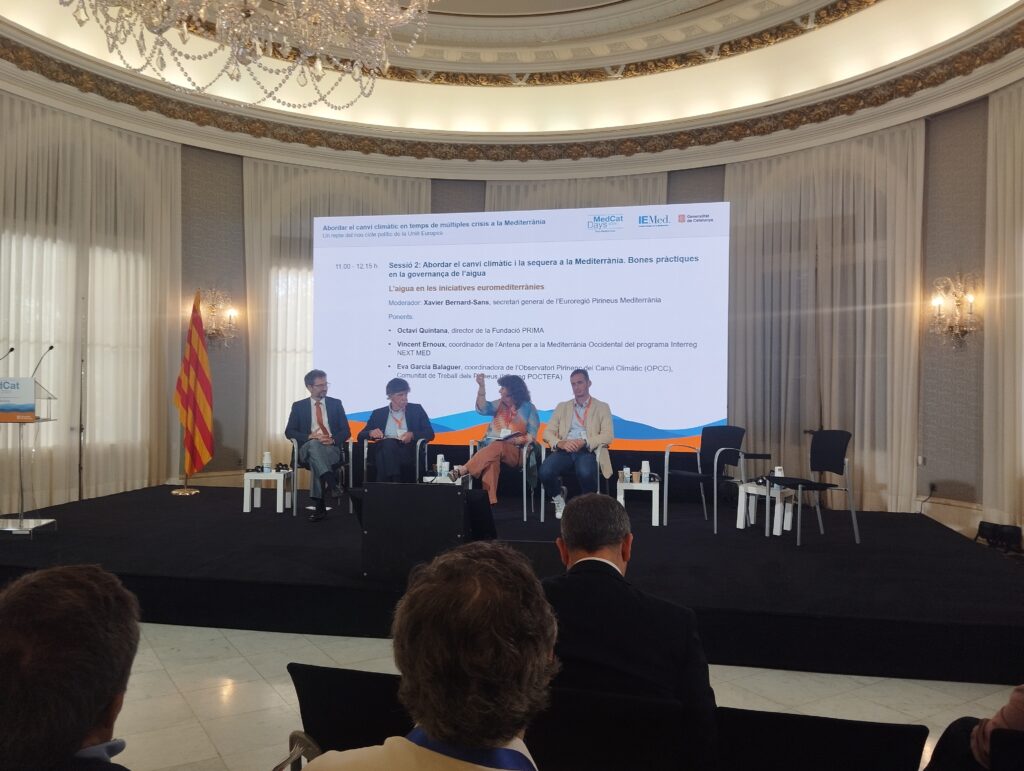
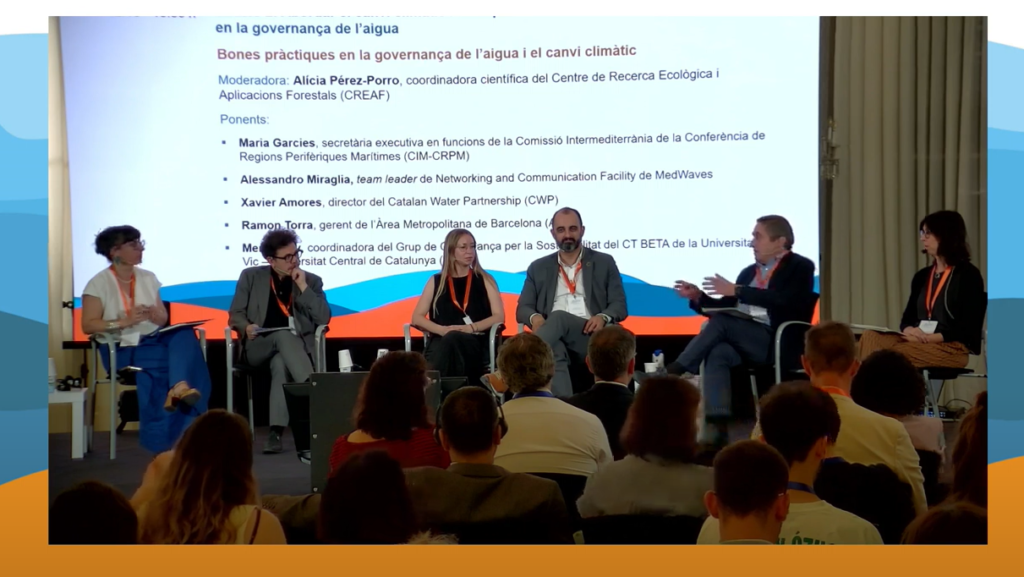
To conclude the meeting, the Minister for Foreign Action and European Union of the Government of Catalonia, Ms. Meritxell Serret, stressed that special attention must be paid to climate change, but from a very open and cross-cutting perspective because: “It is something that cuts across other social and economic issues, contexts of war or migratory crises. It is also necessary to strengthen food sovereignty and, for all this, to take into account the role of young people, who have a key role to play in making the Mediterranean more resilient“.
Serret pointed to the creation of a macro-regional strategy for the Mediterranean to have a multilevel governance that is closer to the citizens, being able to act more efficiently in the face of all these present and future challenges. This macro-regional Mediterranean strategy is supported by the members of the MedCoopAlliance, from which MedCities and the Catalan Government are funders, and their partners and friends.
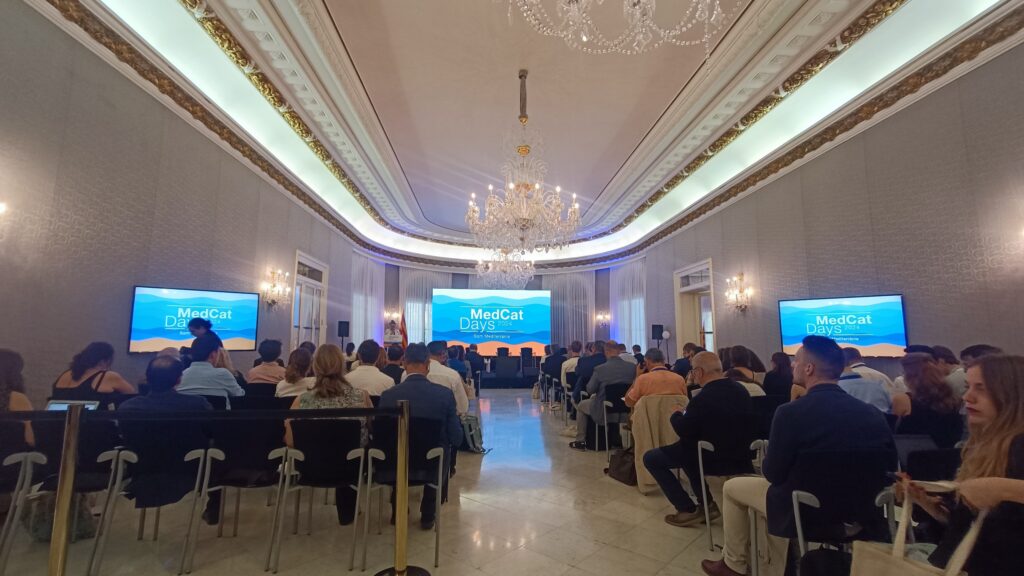

The main key objectives of the two days Meeting were:
The MedCatDays took place in Barcelona (Palau de Pedralbes) organized by IEMED and the Foreign Action and European Union Department of the Generalitat de Catalunya and it had some side events, such as the presentation of the Mediterranean Urban Agendas in which MedCities also participated. You can read the related news here.
Subscriu-te al nostre butlletí mensual per rebre totes les notícies.

Nam porttitor blandit accumsan. Ut vel dictum sem, a pretium dui. In malesuada enim in dolor euismod
Nam porttitor blandit accumsan. Ut vel dictum sem, a pretium dui. In malesuada enim in dolor euismod

Nam porttitor blandit accumsan. Ut vel dictum sem, a pretium dui. In malesuada enim in dolor euismod

Nam porttitor blandit accumsan. Ut vel dictum sem, a pretium dui. In malesuada enim in dolor euismod
Nam porttitor blandit accumsan. Ut vel dictum sem, a pretium dui. In malesuada enim in dolor euismod

Nam porttitor blandit accumsan. Ut vel dictum sem, a pretium dui. In malesuada enim in dolor euismod